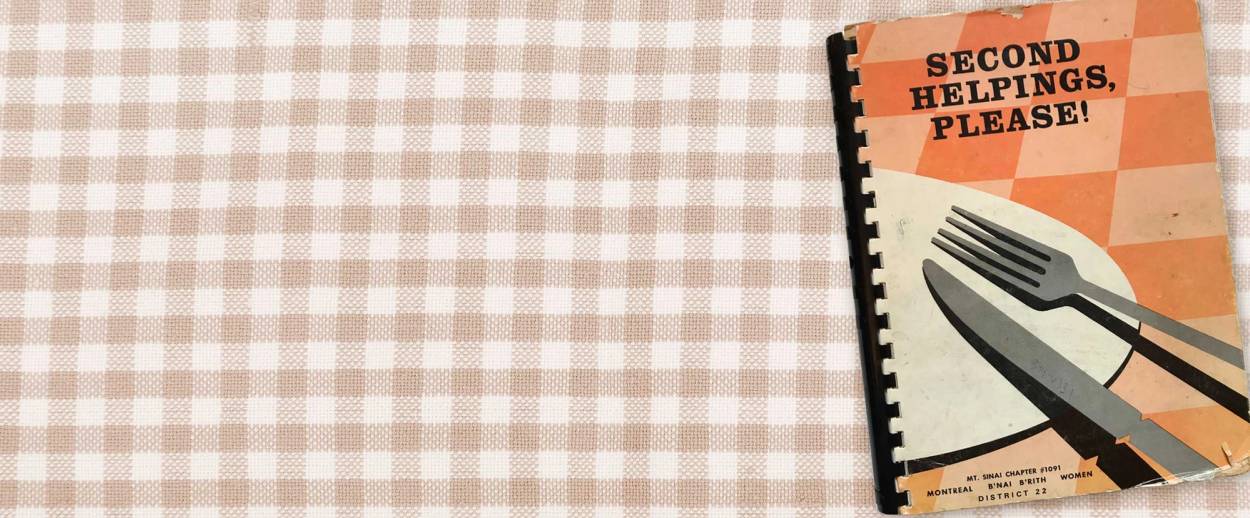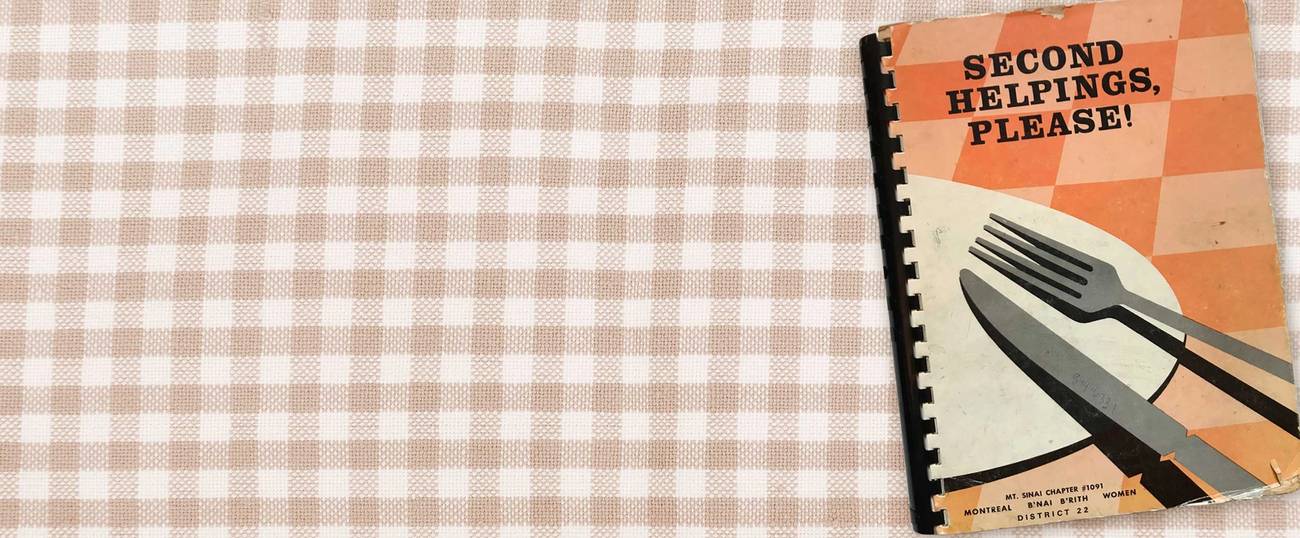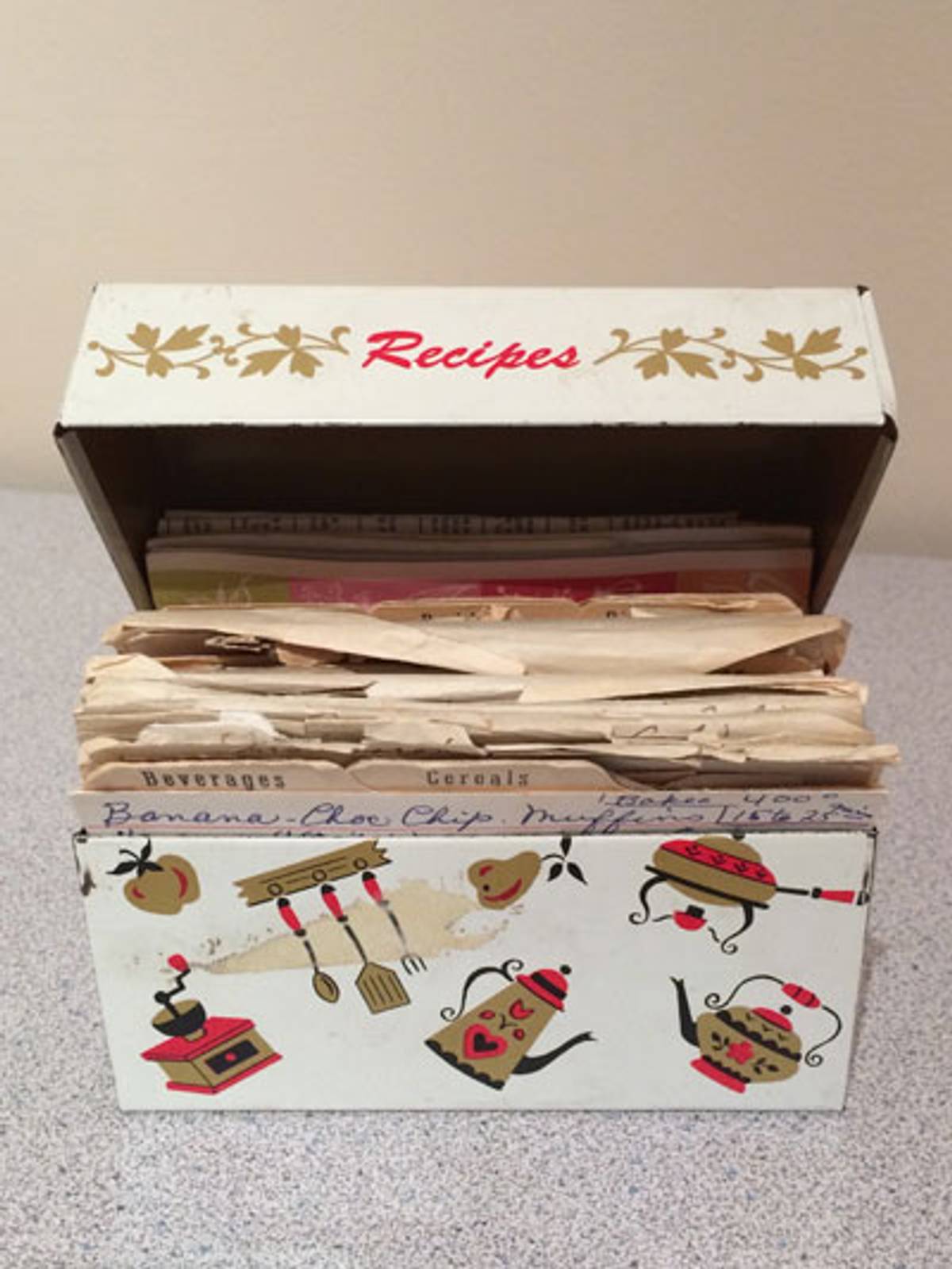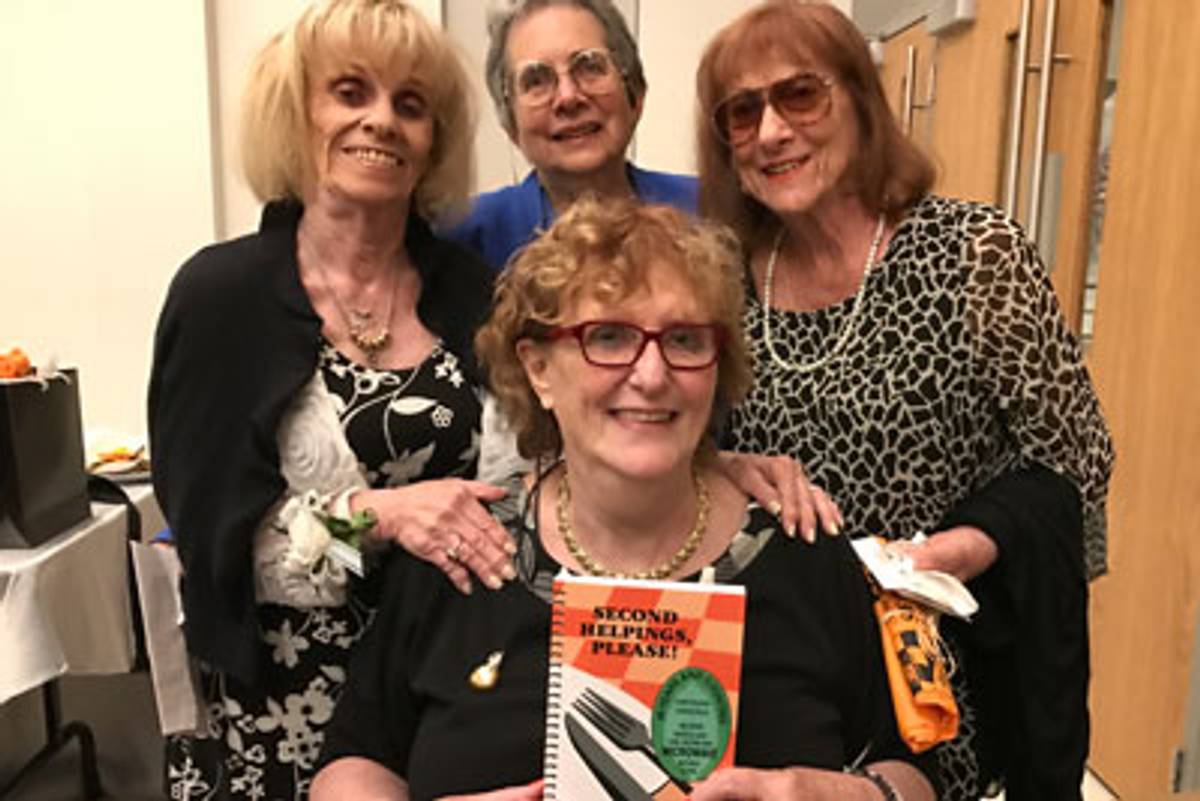Legendary Cookbook Turns a New Page
‘Second Helpings, Please!’ has been teaching Canadian Jews how to cook—and raising money for charity—for nearly 50 years




More than 200 women packed the foyer of Toronto’s Shaarei Shomayim Synagogue earlier this summer for Savour the Flavour, a fundraiser in support of abused Jewish women. The event began with a cocktail party. But instead of serving the usual dainty tidbits and finger foods, the waitstaff brought out generous portions of hearty, old-fashioned dishes like sweet-and-sour meatballs (recipe here) and pulled brisket with barbecue sauce.
The menu was a tribute to Canada’s iconic Jewish cookbook Second Helpings, Please!, which was officially relaunched at the gala later that evening. The spiral-bound book was first self-published in 1968 by a Montreal chapter of B’nai Brith Women of Canada. Since the book’s inception 49 years ago, more than 175,000 copies have been sold, raising more than $200,000 for a children’s residence in Israel. Second Helpings became a popular gift for new brides and young adults leaving home. People loved the simplicity of the recipes, particularly the ones for traditional Jewish fare, such as potato knishes, and tangy sweet-and-sour meatballs. While demand for the book has remained strong, the supply dwindled significantly after the 16th printing in 2008. Copies were selling for as much as $200 on Amazon. Norene Gilletz, the Toronto-based editor of Second Helpings, said that in the last couple of years she had gotten many requests for the book. So did Jewish bookstores across Canada.

When the Savour the Flavour festivities moved to the social hall, many women remained in the foyer clutching multiple copies of the cookbook. They were waiting in line to get their books signed by Gilletz. Today she is one of Canada’s leading kosher cookbook authors, known for such books as The New Food Processor Bible and Healthy Helpings (originally published as Meal Leani Yumm!); she is currently working on her 13th book, The Brain Boosting Diet: Reduce the Risk for Alzheimer’s and Dementia, which is due out in 2018. But Second Helpings launched her culinary career.
Gilletz left her hometown of Winnipeg for Montreal when she was 19. She was married at 20 and had her first child a year and a half later. At the time, it was common for Jewish women to join BBWC. The Mount Sinai chapter was a good fit for Gilletz, because all the women were young suburban mothers like her.
In 1965 the chapter held a tea for new members and everybody brought a homemade dish. The food was so good that the women decided to publish a cookbook as a fundraiser. “We thought it would take us three months,” Gilletz recalled. “It ended up taking three years.”
She realized the recipes had to be more carefully vetted for inconsistencies. “I was going through the recipes and I began to notice errors,” she said. “There was a tomato rice soup recipe that didn’t have any rice, and a bean and barley soup without beans.”
Harriet Nussbaum, the cookbook’s business manager, told me in a phone call from Montreal that even with careful editing, some mistakes in Second Helpings were not caught right away. A recipe for lasagna, for example, called for 1/4 cup of Tabasco sauce instead of 1/4 teaspoon. Nussbaum got an angry phone call from her cousin in New Jersey, who had made that lasagna recipe for guests. “She had to throw it all away,” said Nussbaum, “but we’re still talking.” That error had to be hand-corrected on all the remaining first-edition copies. Nussbaum said the order forms at the back of the book helped to boost sales worldwide. She became the de facto sales manager because her address was on the order form; when the book was first published she was the only woman in the chapter to own a home.
Initially, however, she did not have a car. Nevertheless she kept Second Helpings in stock at bookstores across Canada and at gift shops in local synagogues and hospitals: She would often fill small orders at home and transport the books to the post office in a baby stroller with her three young children in tow.

Nussbaum is credited with keeping the project alive for the last four decades: She oversaw the printing of the first 16 editions of the book. Usually 5,000 copies were produced at a time. One year, 25,000 copies were printed and they had to be stored in the homes of several chapter members, including Nussbaum. Her basement happened to get flooded; while many books had water damage, she said chapter members were able to salvage every copy by drying the pages with hair dryers.
By 2016, Nussbaum was ready to retire from the project. At that point the BBWC had already evolved into a social service agency providing support to abused Jewish women in the Toronto area. The organization that had been BBWC was now called Act to End Violence Against Women, known as ACT.
Penny Krowitz, the executive director of ACT, told me that when Nussbaum approached her about taking over the rights to Second Helpings, she “jumped at the opportunity.” “We couldn’t let the book die,” said Krowitz. “It was too important a legacy.”
Gilletz connected Krowitz to Nick Rundall, her publisher at Whitecap Books. “Norene mentored me through the whole publishing process,” said Krowitz. “Nick asked me if I wanted to add pictures, and I said, ‘no.’ I wanted to maintain the integrity of the original book.”
Krowitz also has a personal attachment to the book. “I’ve had my copy for 49 years. I have always cooked from this book,” she said. “Mine has no more bindings. It’s held together by elastic bands.”
Her words were echoed by many posts on Gilletz’s Facebook page, Norene’s Kitchen, when she asked people about their connection to Second Helpings. A lot of women called the book their “cooking Bible.”
In a Facebook post, Arlene Sylver of Toronto wrote that the cookbook changed her life: She was married at 20 and didn’t know how to cook, so she called her mother almost daily until she got a copy of Second Helpings.
Montrealer Leslieann Kuw Wener also posted on Facebook. She did not know “how to boil water” when she got married, she wrote. “I raised a family on Second Helpings.”
Similar sentiments were expressed by many women who attended the Savour the Flavour gala.
Hyla Benson bought five books—one for her daughter and copies for her friends’ daughters. “They want to make all the old-fashioned recipes we grew up on,” she said.
Denise Robbins said she was glad to get a new copy of her book. Her old copy originally belonged to her mother-in-law. “I have had to rebind it so many times,” she said. “This is the cookbook I always go back to.”
***
Like this article? Sign up for our Daily Digest to get Tablet Magazine’s new content in your inbox each morning.
Barbara Silverstein is a freelance writer and holistic nutritionist based in Toronto.
Barbara Silverstein is a freelance writer and holistic nutritionist based in Toronto.